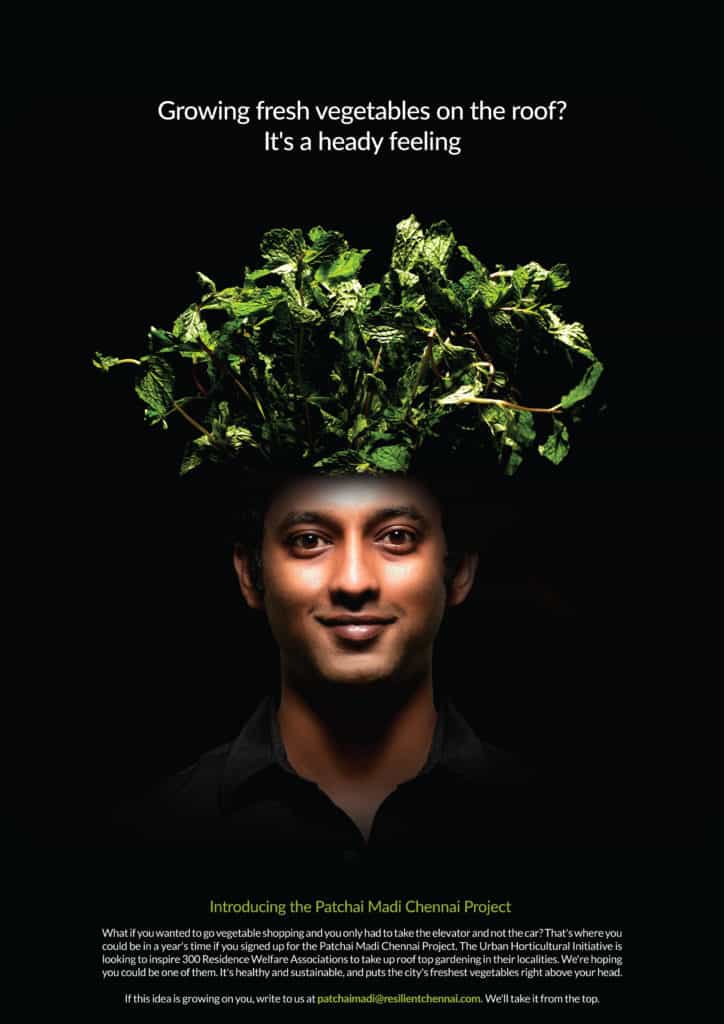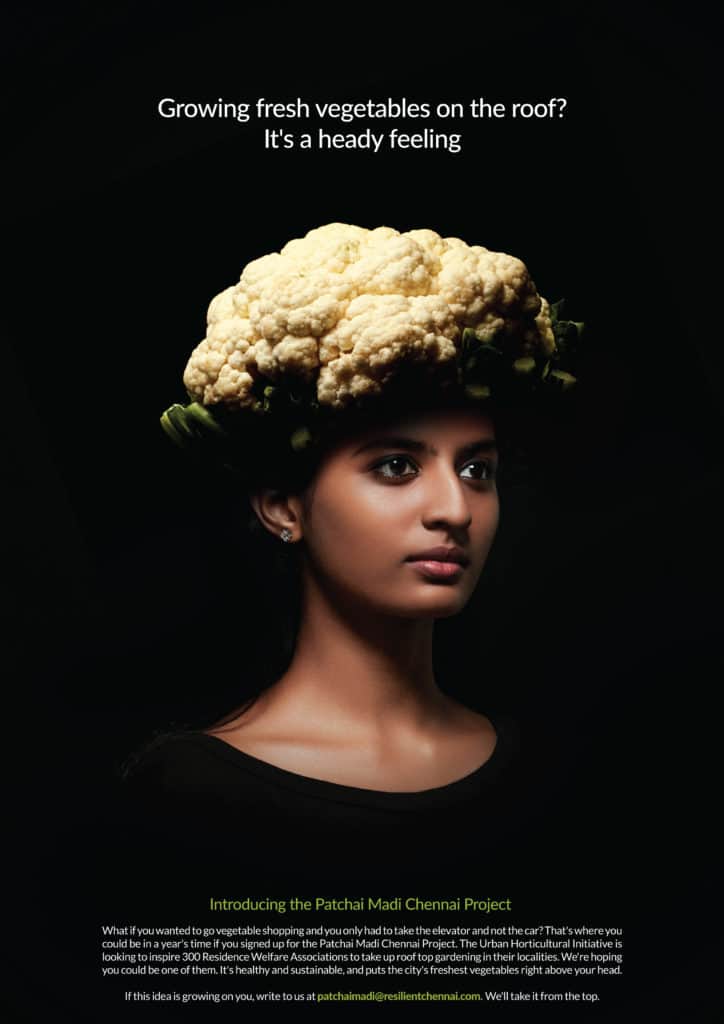The Patchai Maadi project, an initiative of the Chennai Resilience Centre (CRC) and supported by The Adrienne Arsht Rockefeller Resilience Centre (AARFRC), is part of a three-pronged strategy to improve the green cover of Chennai and encourage urban horticulture.
The Patchai Maadi project envisions a garden over every rooftop in Chennai. The project aims to rope in RWAs and schools and other institutions to create urban gardens that can thrive in the right conditions. The vision is to reach six lakh households by 2030.
To this end, the CRC called for citizens to pitch in with ideas on how the Patchai Maadi project could capture the popular imagination of Chennaiites and can be the driving force for urban greening.
Winning ideas to make Chennai green
Ten entries were chosen from the creative responses to the call for ideas to push rooftop gardening as an ubiquitous project across the city.
- Involving children and seniors
By roping in children and senior citizens, the message of urban greening and rooftop gardening can be spread far and wide, wrote in Harini Shekar of Nanganallur. She suggested a residential score card that could be maintained in each apartment block with points awarded for each harvest from the rooftop garden
- Maadi with Maddy
Celebrity ambassadors provide a boost for a cause with their presence and articulation. Brindha Jayakanth of Mylapore wrote in with the suggestion of roping in R Madhavan, the popular Tamil movie star as an ambassador for the Patchai Maadi project.
She suggested that a shoutout by the actor on social media or a visit to the best performing housing societies could become an incentive for launching the rooftop gardens.
- Getting influencers on board
Making the gardening project attractive by promoting it through the many influencers online and offline was the suggestion by Oinam Devi of Nandanam. She emphasises that creating an element of mystery and evoking curiosity among citizens could be a campaign that could help launch the rooftop gardening efforts. By dropping off gardening kits with influencers, citizens can get a taste of the process before participating in the effort themselves.
- Fostering camaraderie
Hemavathi G of Nanganallur wrote that fostering camaraderie between people living in the same housing complex or streets could encourage rooftop gardens. This could be done by hosting movie nights on the rooftop gardens which will serve as a perfect setting to unwind. Movies that send out strong social messages on environmental conservation could be the ideal pick to push people to take charge.
- Decision Tree
Karl Beelen of Neelankarai feels that a detailed plan would bring residents to take rooftop gardening seriously. For this, he suggests that each RWA create a flow chart that maps all the processes that go into creating the garden.
Specific benefits for each member due to the presence of the garden can be outlined (e.g cooler houses and reduced A/C bills) so that the project is taken seriously. Such planning will also allow for RWAs to prepare for any hurdles on the way.
- Quiz time
The best way to foster interest in rooftop gardening is through testing the existing level of knowledge of the citizens feels Kalyani Candade of Kilpauk. She suggests fun quizzes on organic gardening, nutrition of fruits and vegetables and common plants as a means for people to further their understanding on the topic. Exchanging knowledge through creation of a Facebook page and Whatsapp groups was also a suggestion.
- Battle against mosquitoes
Nirupama S of Kilpauk makes a case for rooftop gardens as an effective way to get rid of mosquitoes. By planting plants such as lemongrass, citronella and nochi, the number of mosquitoes in the vicinity can be reduced. This will prevent illness and also help make shared rooftops a space to unwind. Marigold and garlic pods can be planted to repel other insects as well.
- Garden on wheels
A demonstration of the working of rooftop gardens can be conducted by setting up a mobile garden that traverses the city, suggests S Raghu of Guindy. The garden-on-wheels could be an ideal way for citizens to learn about how to start rooftop gardens and clarify any doubts they may have. Gardening kits can be disbursed through the mobile garden set-up.
- Catchy slogans
Srinivasprabu Rajagopalan has crafted a pithy slogan for the campaign in the style of Rajinikanth’s famous dialogue. “ Manushanoda melmaadiyum, veettoda mottamaadiyum, yeppavum kaaliya irukka koodadhu” (The inside of a person’s head and the rooftop of a house should never be empty)
- Visual cues
Kiran Kumar of Chepauk chose powerful visual cues in the form of posters to encourage rooftop gardening among Chennaiites.



[Complied based on information from the Chennai Resilience Center]